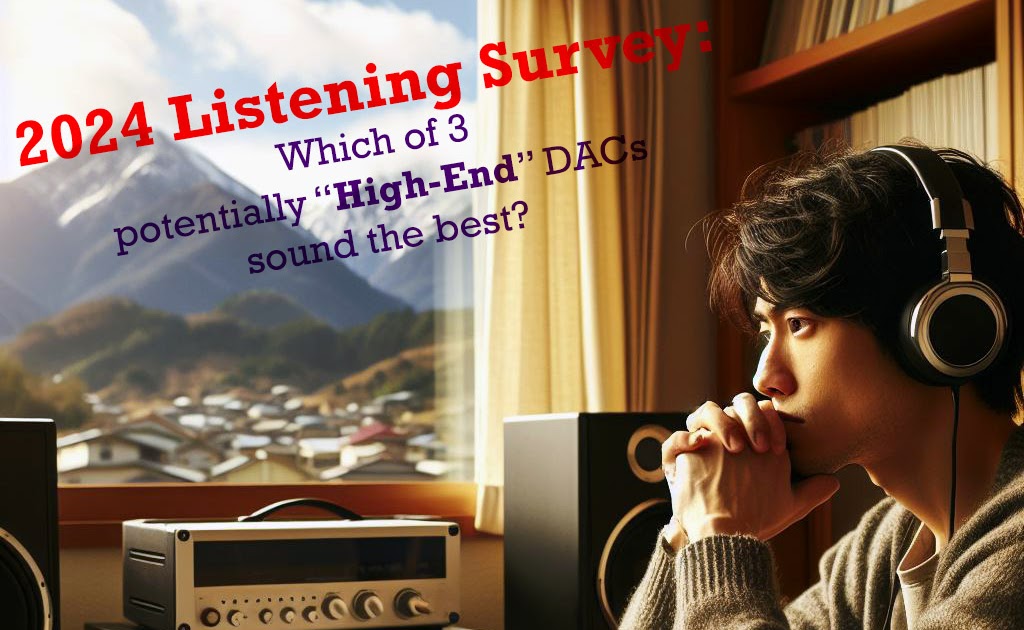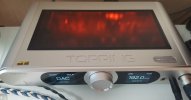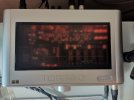What a bizarre discussion: I red some ancient posts that are surrounding the same topics since the creation of the thread.
I use musical gear for enjoying, classical music most of the times.
So perception is all that we have in enjoying music, I’m not concerned about electrical properties of DACs, what I listen is my own reality. If my ears-brain cortex tell me that is good, is good.
At the conservatory we had the same eternal discussion, that lies more on philosophy than on reality: if music is an art, all music is good if someone enjoy it or there’s an external criterion?
Today for me the answer is yes: all music is good since someone enjoy it. I’m more convinced of personal experience than scholastic rules in the field of arts.
At the conservatory we were kind of technicians: dynamics should be controlled, a baroque phrase begins and ends in a concrete way, harmonic rules on impressionism, etc… so for most people the answer was we may have external indicators otherwise we will fail to play “objectively good”.
Most of the participants are technicians also: you use the gear to work, so I can understand the effort you make to create standards reliable on flat response, low distortion and other calibration tools.
Excuse me if I offended someone, I was a little tired and didn’t realize we were speaking different languages.
Special apologies to Miss Sissy, on mathematics we trend to be a little exigent with non theoretical mathematics formed: statistics is a very subjective field when applications. There are tones of examples of conclusions out of the field that lead to paradoxes: the little problem I gave you was the first we had to solve on our second faculty year: its answer maybe 1/2, 1/4, 1/3 or even we can prove that depending on the probability space constructed every answer between 0 and 1 is valid. If we apply to calculate how many drops of rain will fall inside the central circle the answer is probably 1/4, if we calculate angles with an arc and an arrow randomly the answer will be around 1/2, etc.
I don’t want to extend the discussion of the limitations of statistical trials, but when you see a doctor he give you a medication based on probability: he never knows what will be the effect on you, individuals have different responses on chemicals, and precisely because we don’t know how all human bodies behave internally, statistic are used to manage our ignorance. That’s all they do, no matter the discipline where applied. Never give conclusions out of the probability space, nor cause-effect relationships (don’t take “correlation” as “causality”: in statistical theory all happen at the same time, a characteristic that give bizarre results on quantum mechanics discussed intensely between physicists since 1915).
As final conclusion, I just wrote in this thread because I have 2 DACs that sound different and I felt on the topic just by curiosity. I had no doubt about they sound different
In general the original question by the autor was not responded concisely: I let a resume of a few notes are taken to the question “how can DACs measured transparent can sound different?”
-They don’t (majority)
-Filters alters the sound (some members)
-Measurements may fail to predict transparency (my suggestion that caused a lot of reactions, and probably audiophile believes)
-Other unknown variables (again my suggestion, same as measuring incompleteness but differently formulated)
My personal thoughts are not relevant: I have no measurements nor experience on audible transparent DACs. The only comparison I did is between Ifi Zen Dac Signature v2, Focusrite Scarlett 2i2 4th gen regarding to pure DAC section.
I have also compared headphone portable DAC-amps but I don’t know if it’s the same thing: this were Dragonfly Red, Dragonfly Cobalt, Ifi Go Bar and Ifi Go Link and Apple EarPods (that have a minuscule DAC on the USB connection).
If anyone can aport measurements on this devices please share, I didn’t found them






